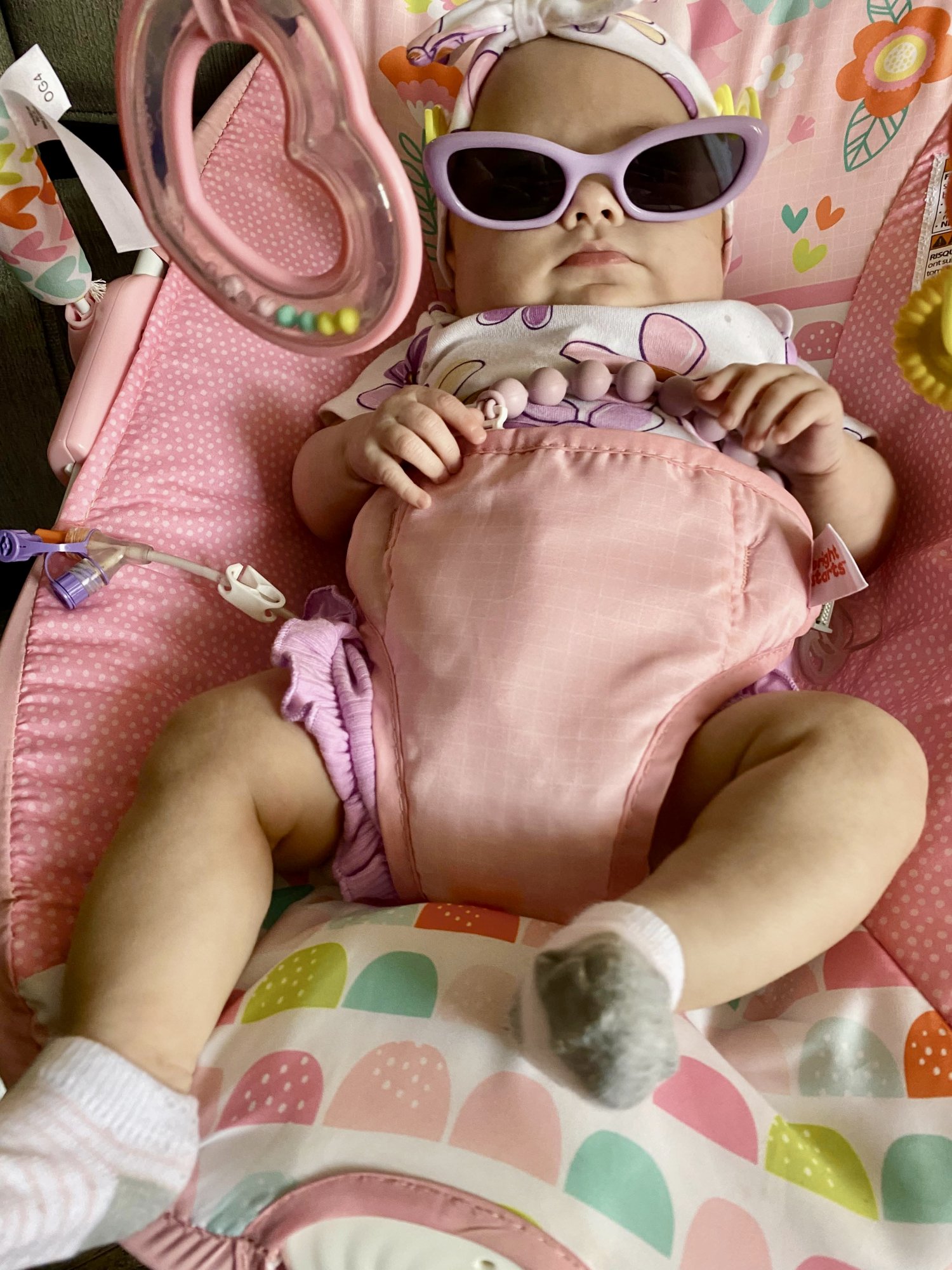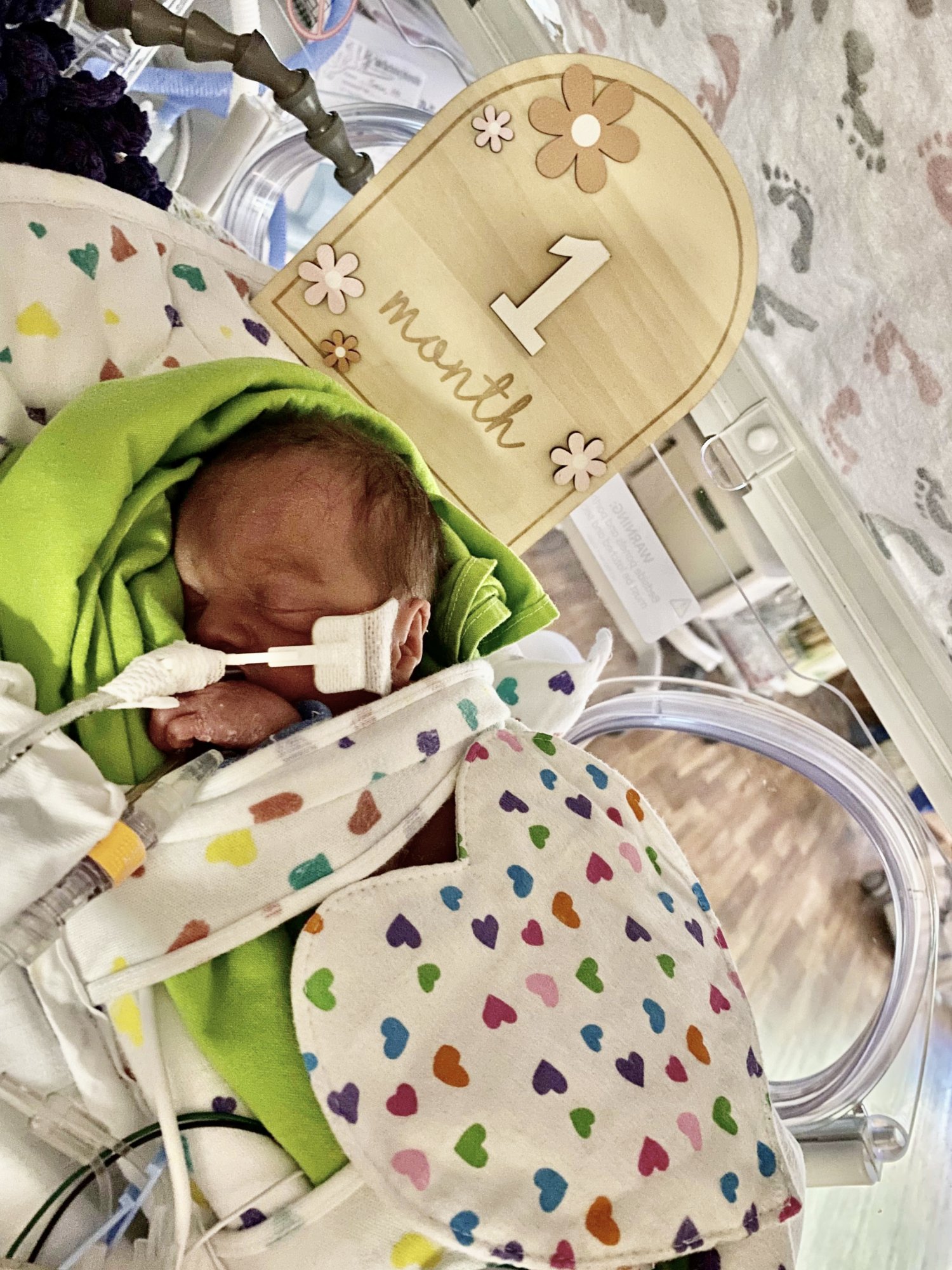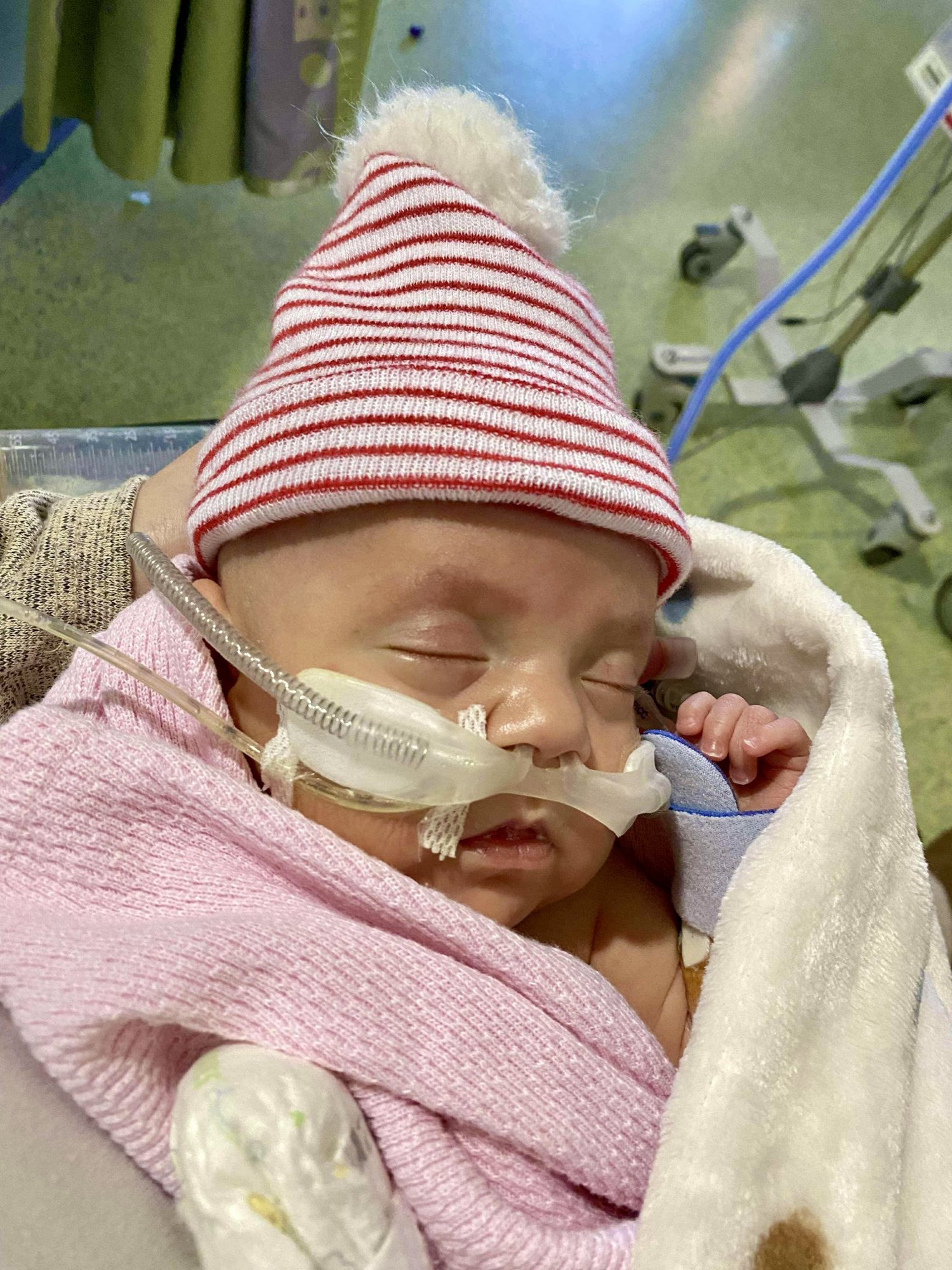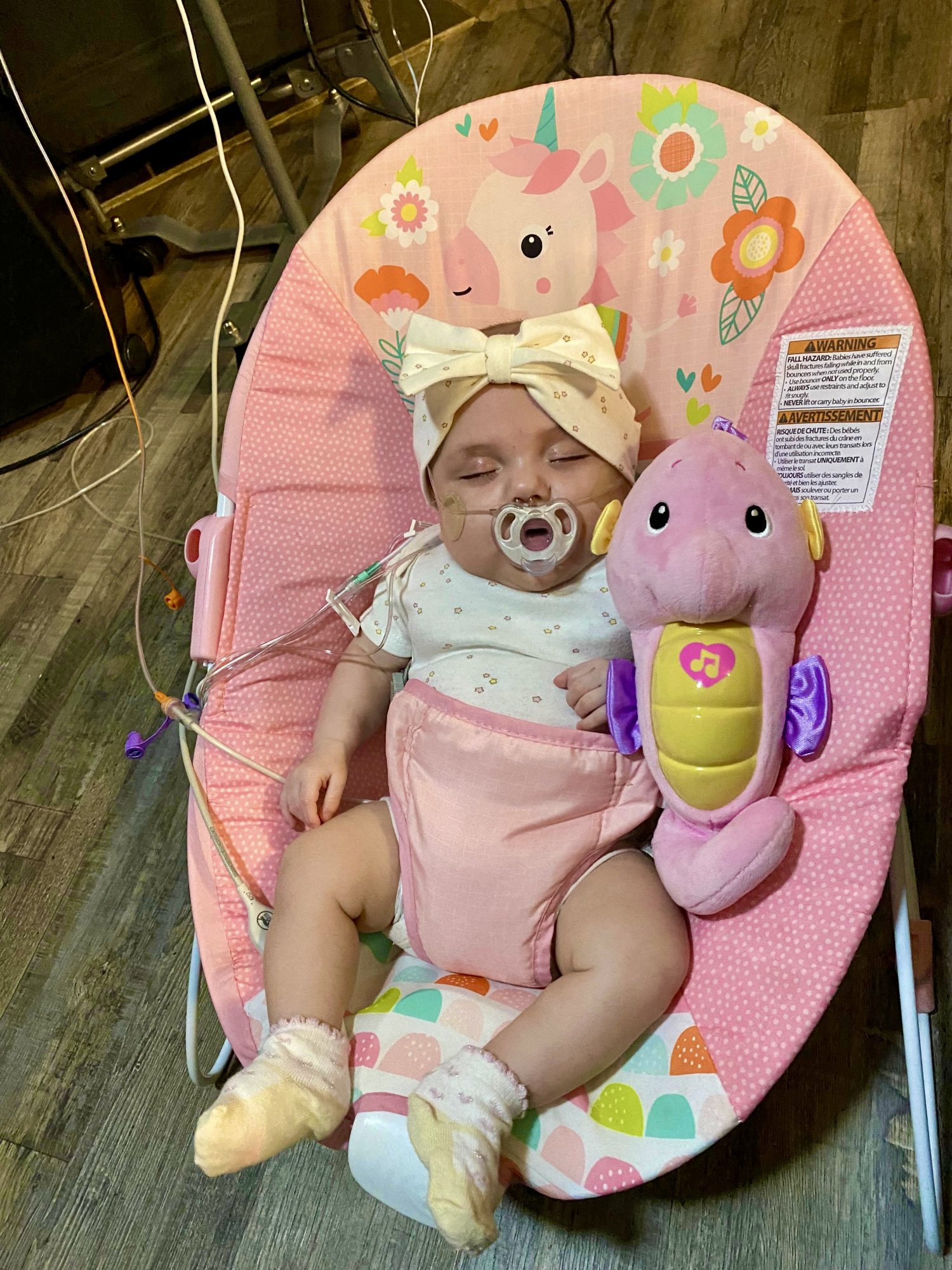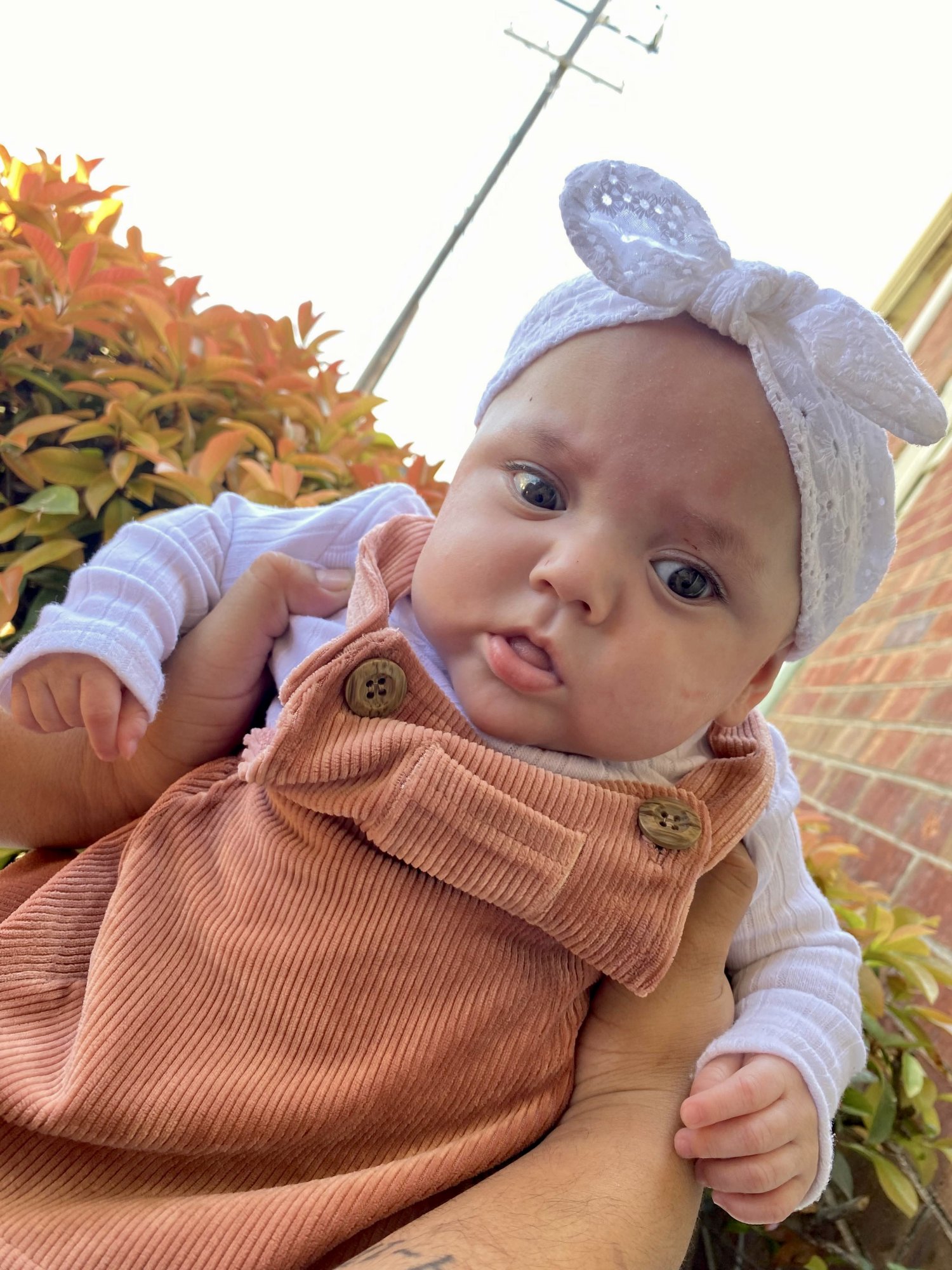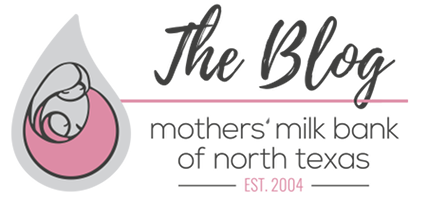Hope in the NICU: Sophia's Story of Surviving NEC
Eight-month-old Sophia was born on August 13, 2024, at 24 weeks weighing only 1.8 pounds. As a “micropreemie”, she was extremely fragile and immediately required specialized care in the NICU.
Sophia needed support for vital functions such as breathing, feeding and temperature regulation and faced significant challenges along the way. Like many premature and medically vulnerable infants, she developed necrotizing enterocolitis (NEC), a life-threatening condition that causes severe inflammation of the intestines.
NEC is the most common gastrointestinal disease and leading cause of death in NICUs. According to the NEC Society, “Factors that increase the risk for NEC include premature birth, low birth weight, absence of mothers’ milk (or donor milk) and severe anemia.”
Sophia’s case required surgery when a bacterial infection caused intestinal necrosis (tissue death). Her resulting short bowel syndrome made formula hard to digest. She started receiving donor milk in the hospital in December 2024. Her mother, Samanth says, “I was not aware that milk banks existed. I was very thankful.”
Incredibly, Sophia survived. Now at eight months, she is still receiving donor milk through the milk bank’s outpatient program. In addition to her short bowel, she is oxygen and gastro tube dependent. She also has pulmonary hypertension and chronic lung disease.
Samantha says, “Donor milk has really helped Sophia receive all the nutrients and vitamins she needs. It has helped her grow. She is much more active and alert, and my baby has gone from 1.8 pounds to 15 pounds!” To milk donors, she adds, “A million times, thank you! You women are a true blessing. A true blessing to those of us moms who are not able to produce milk or simply cannot breastfeed.”
–
May is NEC Awareness Month. While there are still many unknowns about NEC, efforts continue to better understand, prevent and treat this devastating disease. The NEC Society is a nonprofit that collaborates with patient families, clinicians and researchers to build a world without NEC through research, advocacy and education. Learn more at necsociety.org.
